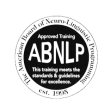
NLP Therapy Sessions: Techniques and Benefits
Neuro-Linguistic Programming (NLP) therapy is a psychological approach that focuses on the connections between neurological processes, language, and learned behavior patterns. It aims to help individuals reframe their thinking, improve communication, and overcome various psychological challenges. This article provides an overview of NLP therapy, exploring its key techniques and benefits in enhancing mental health.
Introduction
Developed in the 1970s by Richard Bandler and John Grinder, NLP is designed to help individuals understand and change their thoughts, emotions, and behaviors. NLP is often used as a complementary therapy alongside other forms of psychotherapy to enhance outcomes. It’s particularly effective in addressing issues like anxiety, phobias, and communication challenges, making it a versatile tool for mental health professionals.
Understanding NLP Therapy
What is NLP Therapy?
NLP therapy operates on the principle that our thoughts, language, and behaviors are interconnected, and by altering these elements, individuals can achieve personal growth and improve mental health. It emphasizes the role of positive thinking and self-reflection in overcoming obstacles and achieving desired outcomes, making it a popular choice for those looking to reprogram their mental patterns
How NLP Therapy Works
NLP therapy focuses on identifying and reprogramming negative thought patterns and beliefs into more positive and constructive ones. It works by guiding individuals to recognize the subconscious influences on their behavior and emotions, helping them to change their inner dialogue and, ultimately, their actions. This process is facilitated through a range of specific techniques aimed at enhancing self-awareness and behavioral change
Key Techniques Used in NLP Therapy
Anchoring
Anchoring is a technique that creates a positive mental association with specific triggers. For example, a therapist might help a patient anchor a feeling of confidence to a simple physical gesture, such as touching a bracelet. This allows the patient to access that positive state when needed, helping manage anxiety or stress in challenging situations
Reframing
Reframing involves changing the perspective on a particular situation or thought. For instance, a person who feels nervous about public speaking might reframe this fear as excitement about sharing valuable information. Reframing helps shift negative beliefs into more empowering and supportive ones, encouraging healthier responses to stressors
Modeling
Modeling is based on observing and emulating the behavior of individuals who excel in specific areas. This technique allows patients to learn and adopt successful patterns of behavior by replicating the strategies used by role models, such as confidence in public speaking or effective communication skills
Swish Technique
The Swish technique involves using visualization to alter automatic responses to negative triggers. For example, a person with a fear of public speaking might visualize replacing their anxiety-driven image with a scenario where they confidently deliver a presentation. This mental rehearsal helps build a new, positive response to previously anxiety-inducing situations
Covert Hypnosis
Although somewhat controversial, covert hypnosis can be used in NLP to influence patients subtly through body language and tone of voice. This technique helps guide patients toward desired behavioral changes without overtly making suggestions, making it effective in scenarios where direct communication may be less effective.
Benefits of NLP Therapy
Improved Communication Skills
NLP helps individuals enhance their communication skills by teaching them to be more mindful of their language and body cues. This leads to better interpersonal relationships and a more positive impact in both personal and professional settings.
Reduction of Anxiety and Stress
NLP is effective in reducing anxiety and stress by helping individuals change their thought patterns and emotional responses. Techniques like anchoring and the Swish pattern equip patients with tools to manage their anxiety triggers, providing immediate and lasting relief.
Increased Self-Awareness
Through NLP, patients gain a deeper understanding of their thought processes and emotional responses. This heightened self-awareness allows individuals to make more conscious decisions, break free from negative habits, and cultivate a mindset geared towards growth and positivity.
Empowerment and Confidence Building
NLP encourages patients to focus on their strengths and past successes, fostering a sense of empowerment and confidence. Techniques such as modeling and anchoring help build self-esteem and resilience, equipping individuals to handle life’s challenges more effectively.
FAQs
What is NLP therapy, and how does it work?
NLP therapy is a psychological approach that uses specific techniques to help individuals change their thoughts, emotions, and behaviors. It focuses on reprogramming negative thought patterns into positive ones, helping individuals achieve personal growth and improve mental health.
What are the key techniques used in NLP therapy?
Key techniques include anchoring, reframing, modeling, the Swish technique, and covert hypnosis. These methods help patients alter their responses to negative triggers, build confidence, and enhance communication skills.
How can NLP therapy help with anxiety?
NLP therapy helps manage anxiety by teaching patients to reframe their thoughts and anchor positive emotions to counteract anxious triggers. Techniques like the Swish pattern also help patients visualize and adopt new, more positive responses to stress.
What should I look for in an NLP therapist?
When choosing an NLP therapist, ensure they are a licensed mental health professional with additional training in NLP techniques. It’s important to feel comfortable and safe with your therapist, as a strong therapeutic alliance is key to successful outcomes.
Conclusion
NLP therapy offers a dynamic and flexible approach to improving mental health and personal development. By using techniques that reframe thoughts, anchor positive emotions, and model successful behaviors, NLP therapy provides individuals with the tools needed to overcome challenges and achieve their goals. Whether used as a stand-alone therapy or in combination with other methods, NLP is a valuable resource for anyone looking to enhance their mental well-being and unlock their full potential.

How NLP Therapy Sessions Can Transform Your Mindset
In the quest for personal growth and mental well-being, many individuals seek methods to overcome limiting beliefs and negative thought patterns. Neuro-Linguistic Programming (NLP) therapy offers a powerful approach to achieving these goals by transforming the way we think, communicate, and behave. Through NLP therapy sessions, individuals can unlock their potential and achieve a more positive and empowered mindset.
Introduction
Neuro-Linguistic Programming (NLP) is a therapeutic approach that focuses on the connection between neurological processes, language, and behavioural patterns. By understanding and reshaping these connections, NLP therapy aims to help individuals achieve personal growth and change. NLP has gained popularity as a tool for improving communication, overcoming challenges, and fostering a positive mindset.
Understanding NLP Therapy
What is NLP Therapy?
NLP therapy is a psychological approach that combines elements of cognitive-behavioural therapy, linguistics, and personal development. It explores how our thoughts, language, and behaviours influence our experiences and outcomes. NLP practitioners use various techniques to help individuals identify and change negative thought patterns, develop new perspectives, and achieve their desired goals.
The Origins of NLP
NLP was developed in the 1970s by Richard Bandler and John Grinder, who studied the techniques of successful therapists and communicators. They identified patterns and strategies that contributed to their success and developed NLP as a framework for understanding and replicating these patterns. Since then, NLP has been used in various fields, including therapy, coaching, business, and education.
Key Principles of NLP Therapy
The Mind-Body Connection
NLP emphasizes the connection between the mind and body, recognizing that our thoughts and emotions influence our physical state. By understanding this connection, individuals can learn to manage stress, improve their well-being, and achieve a more positive mindset.
The Power of Language
Language plays a crucial role in shaping our thoughts and behaviours. NLP explores how language patterns can reinforce negative beliefs or empower individuals to make positive changes. By becoming aware of our language and reframing negative statements, we can influence our mindset and outcomes.
Modelling Success
One of the core principles of NLP is modelling, which involves identifying and replicating the thought patterns and behaviours of successful individuals. By studying and adopting these patterns, individuals can enhance their skills, improve performance, and achieve their goals.
The Benefits of NLP Therapy Sessions
Overcoming Limiting Beliefs
Many individuals struggle with limiting beliefs that hold them back from reaching their full potential. NLP therapy helps identify and challenge these beliefs, replacing them with empowering thoughts and behaviours that support personal growth.
Improving Communication Skills
Effective communication is essential for success in personal and professional relationships. NLP therapy enhances communication skills by teaching individuals to listen actively, express themselves clearly, and understand nonverbal cues. These skills foster better relationships and greater success in various areas of life.
Enhancing Emotional Resilience
NLP therapy builds emotional resilience by helping individuals manage stress, anxiety, and negative emotions. Through techniques such as anchoring and reframing, individuals can develop a more positive and adaptive response to challenges.
Increasing Self-Awareness
Self-awareness is a key component of personal growth. NLP therapy encourages individuals to explore their thoughts, emotions, and behaviours, gaining insights into their patterns and triggers. This self-awareness forms the foundation for personal development and empowers individuals to make conscious choices.
Practical Techniques Used in NLP Therapy
Anchoring
Anchoring is a technique used to create a positive association with a specific stimulus, such as a gesture or word. By repeatedly pairing a positive emotion with a chosen anchor, individuals can quickly access that emotion when needed, enhancing their confidence and motivation.
Reframing
Reframing involves changing the way we perceive and interpret our experiences. NLP therapy helps individuals identify negative or limiting beliefs and reframe them in a more positive and empowering way. This shift in perspective can lead to new insights and opportunities for growth.
Visualisation
Visualization is a powerful technique used in NLP therapy to create a mental image of desired outcomes. By vividly imagining their goals and aspirations, individuals can increase motivation and focus, making it easier to take the necessary steps towards achieving them.
Rapport Building
Rapport building is an essential skill in NLP therapy, enabling individuals to connect and communicate effectively with others. By matching and mirroring body language, tone, and language patterns, individuals can establish trust and understanding in their interactions.
The Transformational Impact of NLP Therapy
Cultivating a Positive Mindset
NLP therapy helps individuals cultivate a positive mindset by focusing on solutions rather than problems. Through techniques such as reframing and visualization, individuals can develop a more optimistic outlook and approach challenges with confidence and creativity.
Achieving Personal and Professional Goals
NLP therapy provides individuals with the tools and strategies needed to achieve their personal and professional goals. By setting clear objectives, identifying resources, and taking action, individuals can create a roadmap for success and make progress towards their aspirations.
Enhancing Self-Confidence
Self-confidence is a key factor in achieving success and fulfillment. NLP therapy builds self-confidence by helping individuals recognize their strengths, overcome self-doubt, and embrace new opportunities. This increased confidence empowers individuals to pursue their goals and dreams.
Strengthening Relationships
Strong relationships are built on effective communication and mutual understanding. NLP therapy enhances relationship skills by teaching individuals to listen actively, empathize with others, and resolve conflicts constructively. These skills foster deeper connections and more meaningful interactions.
Practical Applications of NLP Therapy
Career Development
NLP therapy is a valuable tool for career development, helping individuals identify their strengths, set career goals, and overcome obstacles. By enhancing communication skills and building confidence, NLP therapy empowers individuals to excel in their professional endeavors.
Personal Development
NLP therapy supports personal development by encouraging self-awareness, emotional resilience, and positive thinking. Individuals can use NLP techniques to develop healthier habits, improve relationships, and achieve a greater sense of fulfillment and well-being.
Overcoming Phobias and Fears
NLP therapy has been used effectively to help individuals overcome phobias and fears. Through techniques such as desensitization and anchoring, individuals can reduce their anxiety and develop a more positive response to feared situations.
FAQs
What is NLP therapy, and how does it work?
NLP therapy is a psychological approach that explores the connection between thoughts, language, and behaviours. It works by identifying and reshaping negative thought patterns, improving communication, and fostering personal growth and change.
Can NLP therapy help with anxiety and stress?
Yes, NLP therapy can help individuals manage anxiety and stress by building emotional resilience and teaching techniques for relaxation and positive thinking. Techniques such as anchoring and reframing can reduce anxiety and promote a sense of calm.
How long does it take to see results from NLP therapy?
The duration of NLP therapy varies depending on individual needs and goals. Some individuals may experience significant changes in a few sessions, while others may benefit from longer-term therapy to achieve their desired outcomes.
What qualifications should I look for in an NLP therapist?
When seeking an NLP therapist, it’s important to look for qualifications such as relevant training, certifications, and experience in NLP. Additionally, consider finding a therapist whose approach and values align with your needs and goals.
Is NLP therapy suitable for everyone?
NLP therapy is suitable for individuals open to self-exploration and willing to take action towards their goals. It is beneficial for those seeking personal growth, career development, improved communication, and greater fulfillment in life.
Can NLP therapy improve relationships?
Yes, NLP therapy can enhance relationship skills by improving communication, empathy, and conflict resolution. These skills foster deeper connections and more meaningful interactions, strengthening relationships.
Conclusion
NLP therapy sessions offer a powerful pathway to transforming your mindset and achieving personal growth. By reshaping negative thought patterns, enhancing communication skills, and fostering emotional resilience, NLP therapy empowers individuals to unlock their potential and achieve their goals. Whether you’re seeking career development, personal fulfillment, or stronger relationships, NLP therapy provides the tools and support needed to embark on a transformative journey towards a more positive and empowered life.
Reference:





